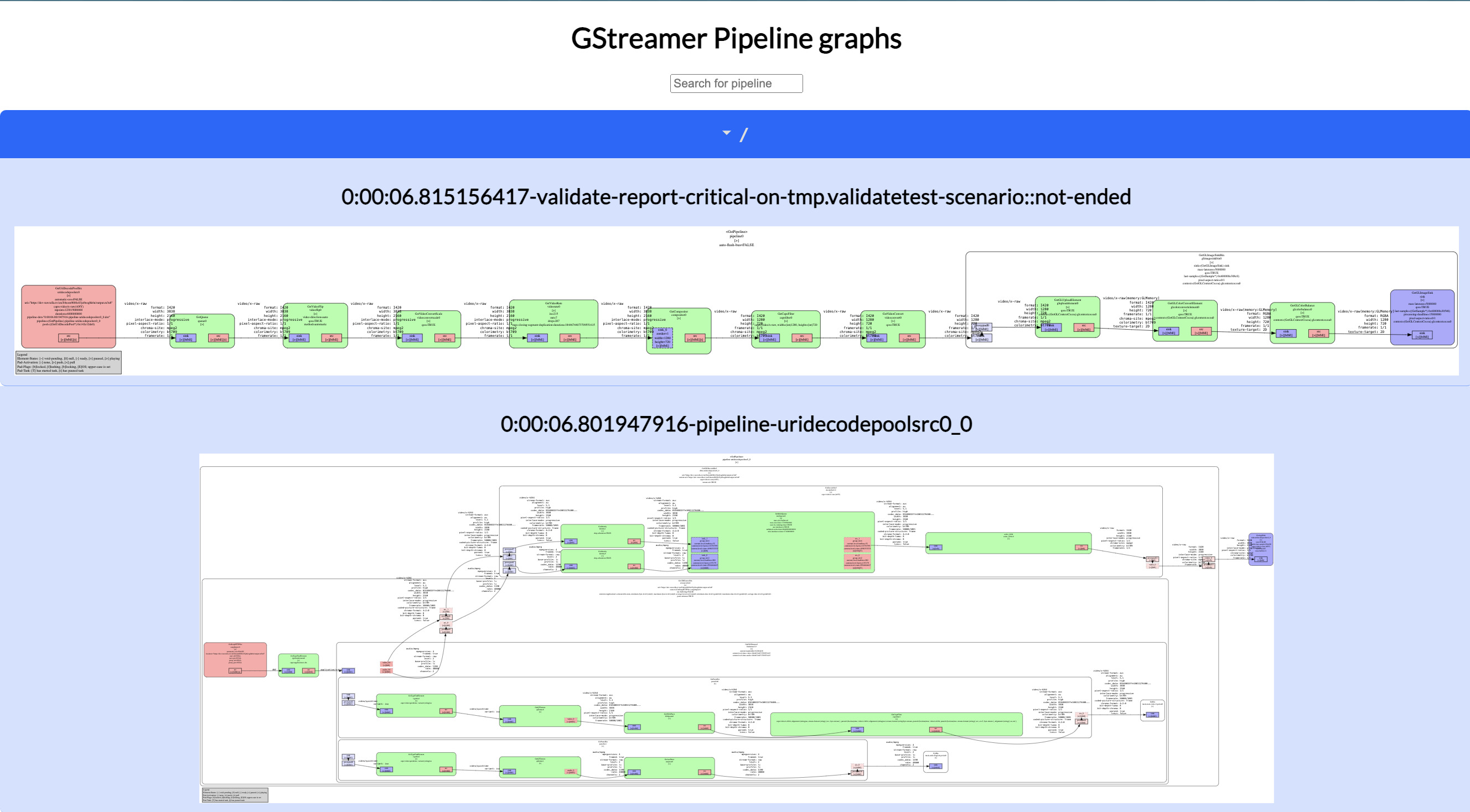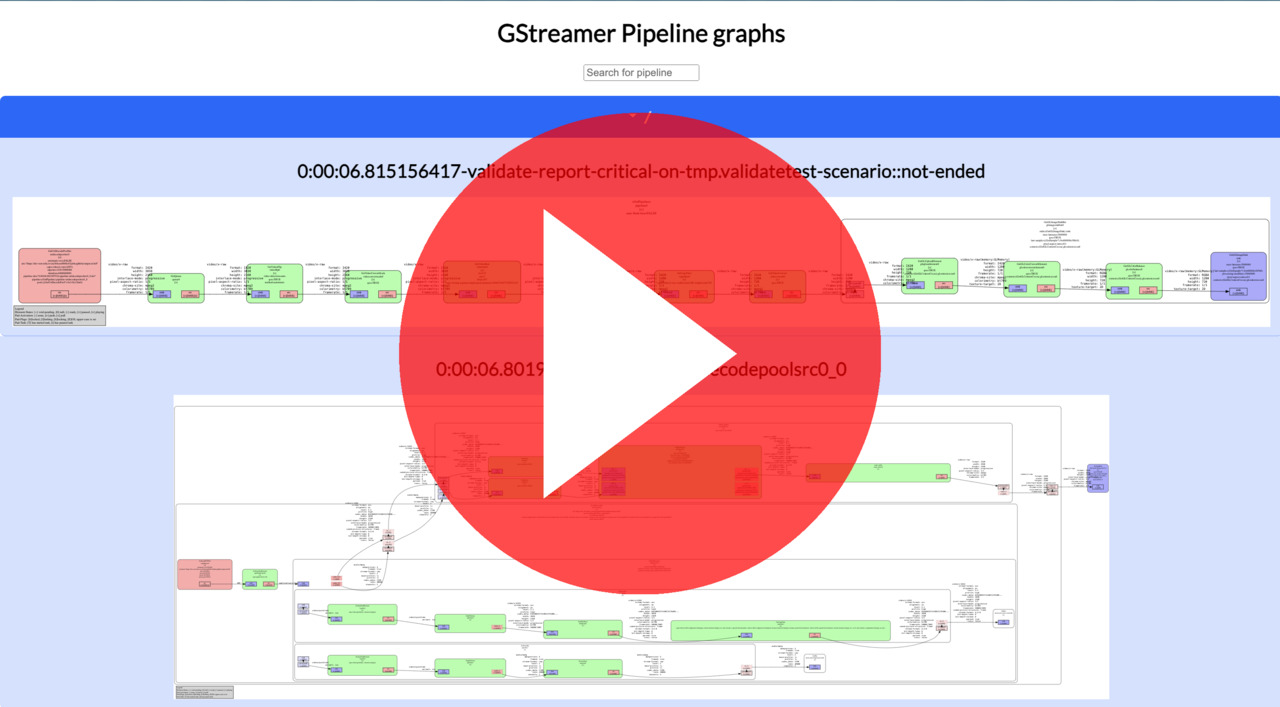This adds `gstdump` and `gst-dots-viewer` server, see the README for more details about what those tools do. Part-of: <https://gitlab.freedesktop.org/gstreamer/gstreamer/-/merge_requests/7999> |
||
|---|---|---|
| .. | ||
| src | ||
| static | ||
| build.rs | ||
| Cargo.lock | ||
| Cargo.toml | ||
| cargo_wrapper.py | ||
| meson.build | ||
| package-lock.json | ||
| package.json | ||
| README.md | ||
gst-dots-viewer
Simple web server that watches a directory for GStreamer *.dot files in a local path and
serves them as a web page allowing you to browse them easily. See
gst-dots-viewer --help for more information.
How to use it
This tool uses the GST_DEBUG_DUMP_DOT_DIR environment variable to locate the dot
files generated by GStreamer and defaults to $XDG_CACHE_DIR/gstreamer-dots/ if it is not set.
You can run it with:
cargo run
Then you can open your browser at http://localhost:3000 and wait for the graphs to appear as you use your
GStreamer application. The web page is updated every time a new .dot file is placed
in the path pointed by the folder watched by the gst-dots-viewer server.
The gstdump utility
In order to simplify generating the dot files when developing GStreamer applications,
we provide the gstdump tool that can be used to remove old .dot
files and setup the pipeline-snapshot tracer with the following parameters:
xdg-cache=true: Use the default 'cache' directory to store.dotfiles, the same as whatgst-dots-vieweruses by defaultfolder-mode=numbered: Use folders to store the.dotfiles, with incrementing number each time pipelines are dumped
If you have already configured the pipeline-snapshot tracer using the
GST_TRACER environment variable, gstdump will not override it.
gstdump also sets GST_DEBUG_DUMP_DOT_DIR to the path where gst-dots-viewer expects them
so pipelines that are 'manually' dumped by the application are also dumped.
Demo
Demo of the gstdump, gst-dots-viewer used in combination with the tracer-pipeline-snapshot
Video:
Start gst-dots
# Starts the `gst-dots-viewer` server with default parameters
# You can open it in your browser at http://localhost:3000
$ gst-dots-viewer
Start the GStreamer pipeline with pipeline-snapshot and gstdump
# This runs the pipeline with `gstdump` which sets up:
#
# - the `pipeline-snapshot` tracer with the following parameters:
# - xdg-cache=true: Use the default 'cache' directory to store `.dot` files,
# the same as what `gst-dots-viewer` uses by default
# - folder-mode=numbered: Use folders to store the `.dot` files, with
# incrementing number each time pipelines are dumped
# - `GST_DEBUG_DUMP_DOT_DIR` path so pipelines that are 'manually' dumped by
# `gst-launch-1.0` are also dumped.
gstdump gst-launch-1.0 videotestsrc ! webrtcsink run-signalling-server=true0
Dump pipelines manually thanks to the pipeline-snapshot tracer
kill -SIGUSR1 $(pgrep gst-launch-1.0)
Each time the pipeline is dumped, the gst-dots-viewer server will refresh
the page to display the new pipelines.

 {width=70%}
{width=70%}